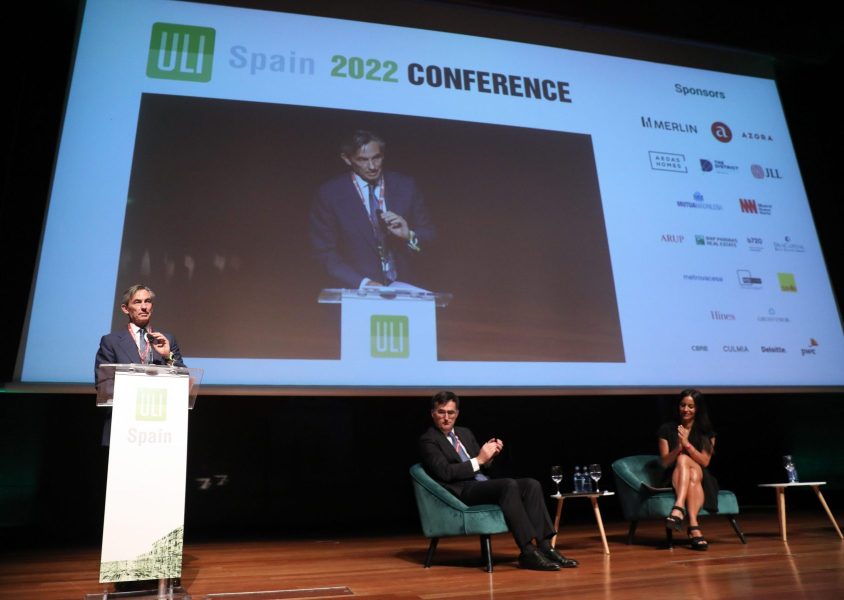16 June 2022
for Madrid Nuevo Norte

ULI Spain’s first annual conference brought together real estate leaders for two days under theme “Transition & Transformation in Real Estate”, to address key cross-industry issues such as city planning, real estate trends, ESG criteria, investment flows and the impact of technology on the transformation of the sector.

The Urban Land Institute (ULI) held its first ULI Spain Annual Conference over two days, from 15 to 16 June, with the aim of analysing the main market trends with the major leaders in the real estate sector. Trends that go: from the growing interest of international investors to ESG criteria, urban planning and design and residential development and its transformation.
The conference, entitled “Transition & Transformation in Real Estate“, was closed by the Deputy Mayoress of Madrid, Begoña Villacís, after a speech from the Chairman of DCN, Álvaro Aresti, who represented the largest urban transformation project being undertaken in Spain, Madrid Nuevo Norte.
“The creation of real estate value begins with good urban design”, said Aresti, explaining how a project such as Madrid Nuevo Norte can and should offer the best opportunity to attract investment, as well as to “reinvent Madrid and position it as a true city of the future”.
As he explained, “today the real estate market cannot be understood if it is not intimately related to the way in which our cities are changing”. “Only the cities that know how to adapt to the great challenges of the new ways of living and working, urban mobility trends, and the higher social and environmental awareness among its citizens, will be the ones who will become truly competitive when it comes to attracting investment and talent”, said Aresti.
“For this reason,” he added, “those of us who are promoting Madrid Nuevo Norte are not doing so as just another real estate or urban development project, but as a strategic and unique project for the city, the region and the country”, as it will allow Madrid to “rethink its economic model and create a space specifically designed for the development of talent-related activities and the knowledge economy”.
One of the keys to tackling the great challenges facing cities is to go beyond the traditional Central Business District models, “which have failed”, explained Aresti, to create “a large space for economic activity capable of offering much more than quality offices, but rather, a city model brimming with life at all hours of the day and every day of the week, with service buildings alongside a wide range of housing, commerce, first-class facilities, unique green areas and high-quality public spaces”.
These mixed-use spaces, which the Madrid Nuevo Norte model embodies, are enhanced by “accessible and sustainable public transport, and a sufficient supply of affordable housing”.
“This approach, coupled with an unprecedented commitment to decarbonisation and urban sustainability, is what is going to make Madrid Nuevo Norte a success for the city and in terms of its real estate product,” said Aresti.